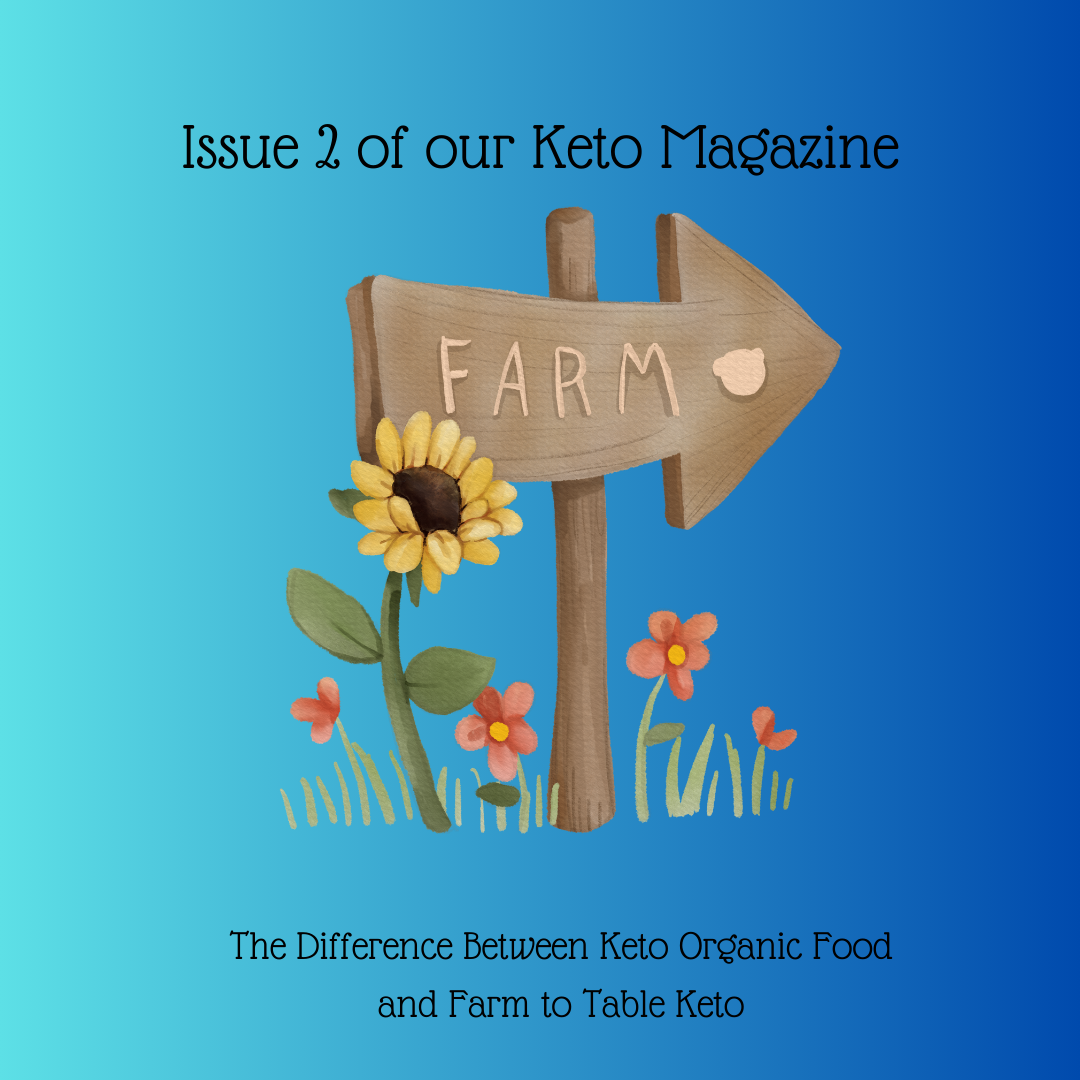Our new magazine is out on Amazon, and it’s all about farm to table keto. Now, you may think that means all the food we discuss is organic. Actually, farm to table and organic keto food are very different things. How can that be? We’ll give you a little taste of how we describe it in the magazine here. If you want the full information, you’ll have to buy it on Amazon.
What Is Farm To Table?
Farm to table is a movement for people who want to eat food that comes directly from the farmer. New restaurants in trendy areas have farm to table meals right at the farm. You do a tour of the farm and then eat a meal a chef creates from their food. Other times, farms will sell directly to individuals. Most commonly, farmers take their food to farmer’s markets and sell their goods directly there. Whatever the case, it eliminates the need for a middle person. It’s taking out the distributor and the grocery store. This is what we focus on in our new magazine.
What Organic Keto Food Is and Is Not
The term organic refers to the way farms grow and process their food they sell. It does not mean it is local or ethically grown. Did you know that a lot of our organic food is from other countries? In 2012, the National Post published an article that stated over half of organic food sold in Canada comes from other countries. Some local farms may sell organic food, but it is not necessarily local food at the grocery store.
Organic food also does not mean the same thing as ethical. Having an organic label may not guarantee that farmers are using ethical practices or that the food is safe and nutritious. It means that a farm is following the standards laid out and paying for the label of organic.
And, organic is definitely not the same as farm to table. Some farmers who sell directly to people without the distributor who sells to a grocery store do offer organic food. But not necessarily. It costs a lot of money to get an organic label, and many smaller farms simply cannot afford to go through the process.
What is Organic Keto Meat?
Meat can get an organic label, and it is certainly keto. Meat, without added ingredients, has no carbs. The best cuts of meat are ones that also have a fair amount of fat, such as steak, pork, the dark meat on chicken, and seafood. To get an organic label, animals do not receive growth or reproductive hormones. The animals also must have adequate space to roam (inside and outside), and must eat organically produced feed.

With farm to table, the animals do not have to meet those requirements, but there is the added benefit of getting to know the farm where you buy your meat. You will know their reputation and how they treat their animals. Without a farm getting a label of organic you will know ethically if you want to invest your food budget with that business.
What is Organic Produce?
On keto, you want to limit yourself to berries for fruit. Now, you can buy organic berries at the grocery store for about double the cost of regular berries. Often, they come from warmer climates, like California or Mexico. Again, the farmers follow strict guidelines for how the berries are grown and they pay a hefty fee for the label. Or, you can go and buy berries from a local farm directly. You can even pick the fruit yourself, if you choose. I did lots of that as a child, so I prefer to get my berries from a roadside stand, where someone else has done the hard work.
Farms that grow vegetables get an organic label if they use only natural pesticides and do not use artificial fertilizers. For keto, you want to get vegetables that are lower in carbs, such as broccoli, cauliflower, and cucumbers. One reason why people choose to buy organic vegetables is for their health. No synthetic chemicals certainly sounds like a healthier option! It’s important to know that while farmers claim their foods contain up to 80% less pesticide residue, research has shown it is actually closer to 30%. Still good, but let’s be realistic.
Is Organic Keto More Environmentally Friendly?
The other main reason people buy organic food is because supposedly it is better for the environment. Again, less synthetic chemicals sounds like a better option. But, organic farms are also less efficient than other farms, which means it takes up more space. This means more deforestation, particularly in areas that depend on exporting food for their economic survival. Also, using mechanics instead of chemicals to remove weeds can damage the soil and release carbon into the atmosphere.
Are We Against Organic Keto?
So, we focus on farm to table in our new magazine, and we thought it was important to show the differences between that and organic eating. We are not against eating organic keto food. But we are against the hype that makes people think it’s something it isn’t. We like farm to table because you will build a relationship with the farmers who are growing what you eat. It’s good for kids to know where their food comes from. Most of all, you can pick farms that are using ethical practices that agree with your morals.
Organic food is all about marketing, in our opinion. It takes hard work, but it also takes a lot of money. You invest in it because it will make you more money. Otherwise, you would just do it and not worry about the label. To us, it is much more valuable to show us you are using your ethics in growing our food. We don’t think the label shows us that. But if we buy our food directly from its source, we know the farmer’s ethics. It’s the best we can do without growing it ourselves.
Wendy




